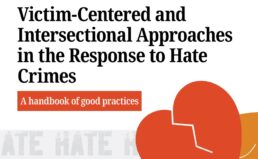Chair of the Lithuanian Parliament Loreta Graužinienė and Prime Minister Algirdas Butkevičius presented the tasks for the spring session of the Parliament on Monday, March 10th. Four homophobic bills and amendments to the existing laws are scheduled for the session.
At the spring session the parliamentarians will consider the amendment to the Code of Administrative Offenses, proposed by Petras Gražulis. This amendment introduces administrative liability for any public defiance (by means of speeches, audiovisual tools, posters and other actions) of the constitutionally established family values. P. Gražulis is seeking to attach this liability to such events as the Baltic Pride 2013 march “For Equality”, which was organized by Lithuanian Gay League in July, 2013. The final reading of this bill is scheduled for March 13th.
At the spring session parliamentarians will also analyze amendments to the Law on Public Meetings, proposed by Petras Gražulis and Andrius Mazuronis, requesting the organizers of the public assemblies to cover all expenses related to ensuring safety and public order in the course of an event. Lithuanian Gay League assumes that this amendment is initiated in relation to the march “For equality”.
The third homophobic proposal to be considered during the spring session is an amendment to the Law on the Fundamentals of Protection of the Rights of Child which prohibits adoptions by same-sex couples.
The fourth homophobic bill to be analyzed is an amendment to the Criminal Code which states that the criticism of sexual behavior or sexual practices, convictions or believes, or persuasion to change this behavior, practices, convictions or believes cannot per se be qualified as harassment, denigration, incitement to hatred, discrimination or incitement to discrimination. This amendment was initiated by Algirdas Patackas and was previously criticized by the Lithuanian government.
In addition to the aforementioned proposals, an amendment to the Civil Code and to the Law on the Registration of Civil Status directly related to the rights of transsexual persons is also planned for consideration during the spring session. One of the proposals is to remove the part 2.27 from the Civil Code. The aforementioned part obligates the state legislators to establish legal means to regulate conditions of the gender reassignment. According to LGL, removing this part of the Civil Code means refusing to legally regulate medical gender reassignment in Lithuania. In practice, this would lead into the absence of adequate medical care for transsexual persons.
It should be noted that some previously proposed homophobic amendments are not scheduled for consideration at the spring session: an amendment to the Civil Code which fully bans gender reassignment procedures in Lithuania; an amendment to the Lithuanian Constitution which defines a constitutionally protected concept of family life as emanating from traditional marriage by a man and a woman and stipulates that family arises from motherhood and fatherhood; and an amendment to the Law on the Fundamentals of Protection of the Rights of the Child which states that “every child has the natural right to a father and a mother, emanating from sex differences and mutual compatibility between motherhood and fatherhood”.




